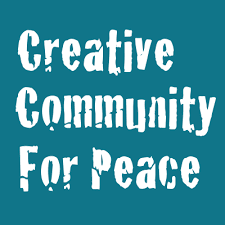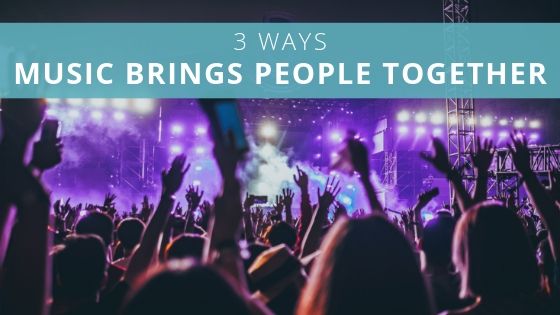Music is a universal aspect of human existence. From the biggest cities to the most remote villages, the driest deserts to the wettest rainforests, the heights of the Himalayas to the depths of the Dead Sea, music is, and always has been, a part of daily life for people around the world. Every culture throughout history has created music, and that musical heritage has become an inseparable part of who we are as individuals and as communities. Here are three ways music brings people together, both within cultures and across cultural borders:
Music is a vehicle for expressing and sharing emotions
Anybody who has ever listened to music knows that it can be an extremely emotional experience. It can make us laugh or cry, become angry or nostalgic, help us sleep or encourage us to party. Musicians pour their emotions into their art, and their fans, whether they number in the tens or in the millions, experience that emotional journey along with them, connecting with the artist and even with each other through their shared experience of the songs. And these emotional aspects of songs are more universal than one might expect. In a recent study, people were asked to listen to 14 second clips of songs from small communities all over the world and to identify the purpose of the song (whether it was a love song, a lullaby, a dance song, etc.). In many cases, they chose correctly, despite the fact that the songs came from foreign cultures.
Music allows people to bond over an experience
In the digital age, live musical events are a great place for people to have human-to-human interactions. Chances are, nearly everybody remembers an amazing concert they attended with a group of friends, and many may even remember somebody they met at one of those concerts. Concerts provide an excellent venue for interacting with people from all walks of life. In Israel, people from all races, religions, and backgrounds come together at concerts nearly every day, setting aside their differences for a moment and singing and dancing together in peace. The Eurovision Song Contest, hosted by Tel Aviv in May 2019, was a recent example of people from all around the world coming together for a musical event, with the finale being watched by more than 200 million people. These things stick with us, and when we hear the songs from those concerts, they bring back the experiences we had there.
Music is a vehicle for sharing our own culture and experiencing others
Music is one of the most important elements of human cultures, and when music from one culture is shared with people from another, they get a meaningful glimpse into another way of life. This is especially important in situations of conflict, when other means of interaction are closed to us. For example, the band A-WA, comprised of three Israeli sisters from a Yemenite Jewish background, sings in Yemenite Arabic, mixing modern and ancient beats. Their music is popular in Yemen, even though Israelis are banned from visiting Yemen and the two countries consider themselves to be enemies. Other Israeli musicians, such as the band Orphaned Land, have achieved success around the Arab and Muslim world, demonstrating the ability of music to rise above politics and connect people on a deeper, more meaningful level.

